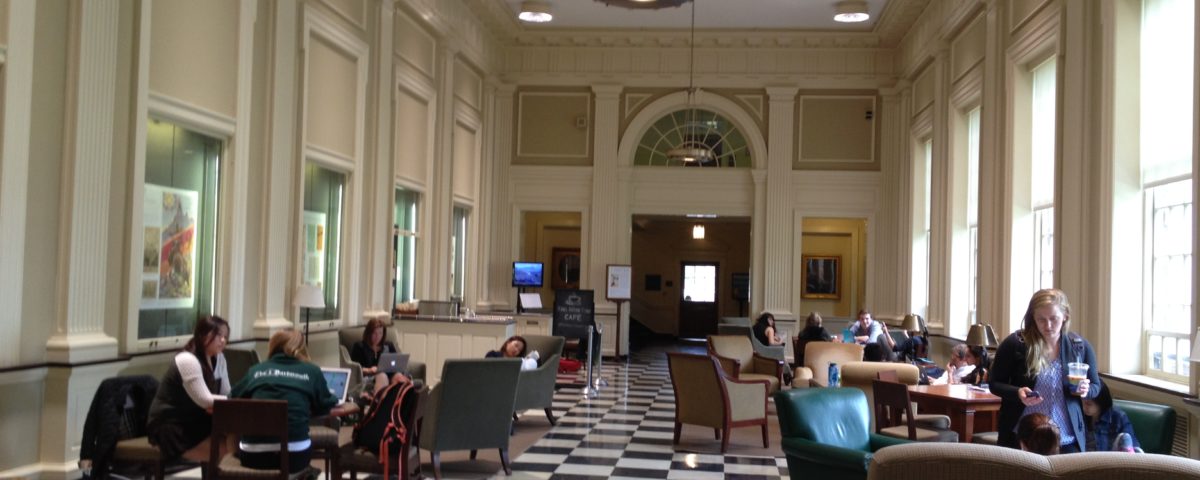On the Road to College with Betsy Woolf – Dartmouth College

The Dartmouth “Shuttle” (actually a full-size coach bus that picks up and discharges passengers near Grand Central Station in NYC) took me to and from the Dartmouth campus for a return trip in May. What I found was a campus of 4,276 undergrads and 2,066 graduate students where the key words are access, flexibility and engagement. With such a small number of grad students, the focus is on the undergraduate experience at a school that views itself as a liberal arts college with the resources of a larger research institution. Dartmouth is very committed to expanding diversity of all kinds on its campus.
Access – I heard a lot about access to professors and resources from administrators, faculty and students. There is an 8 to 1 student/faculty ratio, and 99% of classes are taught by faculty. One student in particular told a story about emailing his professor one Sunday morning with a question regarding his work and in return obtaining an invitation to her house where they talked about his question over coffee.
Flexibility – The Dartmouth Plan: Four ten week terms in which students take three classes per term – and study an average of three terms per year. That allows students to go abroad for multiple terms. In fact, 60% of students study abroad. Dartmouth is also known for its Sophomore Summer in which the entire sophomore class spends the summer term on campus.
Engagement – Professors want students to obtain an experiential education, not just through study abroad commitments. Because of the small number of graduate students, research opportunities abound for undergrads, not just in the sciences, but throughout the curriculum. Through the Presidential Scholars program, students can obtain course credit or get paid for their research endeavors. One of the professors spoke about how students in her history classes work in clusters as teams, something that is encouraged throughout the academic experience. I heard a lot from professors, too, about how they bring in lots of visiting experts to teach and meet with students and the various student organizations on campus.
One of the highlights of the trip was hearing about the Dickey Center for International Understanding and the Thayer School of Engineering. Among other things, the Dickey Center develops programs to encourage students to apply their classroom lessons globally. Among the programs are a minor in international studies; a War and Peace Studies Fellows Program in which students from varied academic areas participate in discussions about international conflict and cooperation and spend a week in Washington, D.C., meeting with policy makers; a Great Issues class where students are introduced to key issues in international affairs (it’s a popular no-credit class that seats about 100 students); and an initiative on human development in which students conduct mentored research and field work.
Regarding engineering at Dartmouth, as one professor said, Thayer wants to graduate “liberally educated engineers.” Students are Dartmouth students first and then choose to study engineering, fulfilling the same liberal arts distribution requirements as their arts and science comrades. Engineering students do study abroad, and can study engineering abroad, although the vast majority are studying the arts and sciences, expanding their perspectives of how technology fits into the broader needs of humans in the world. There is a 10-year plan to build another engineering facility and to increase the number of faculty and to accommodate a greater number of engineering students.
Copyright 2014. Betsy F. Woolf. All rights reserved.

